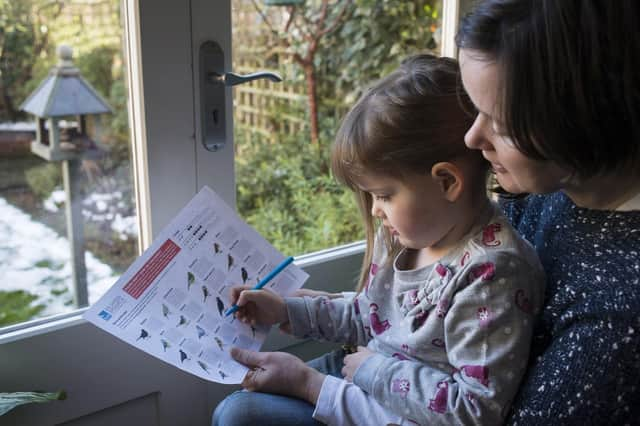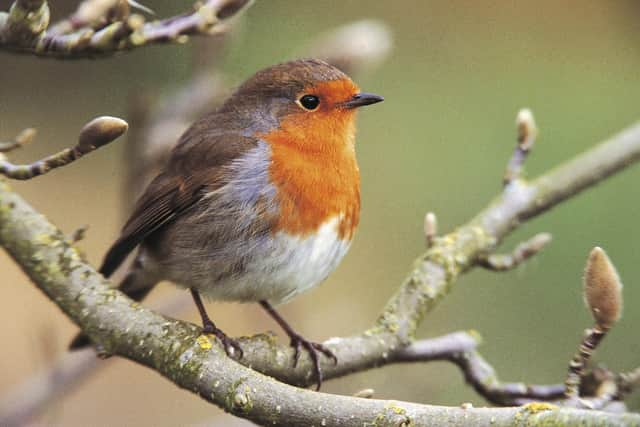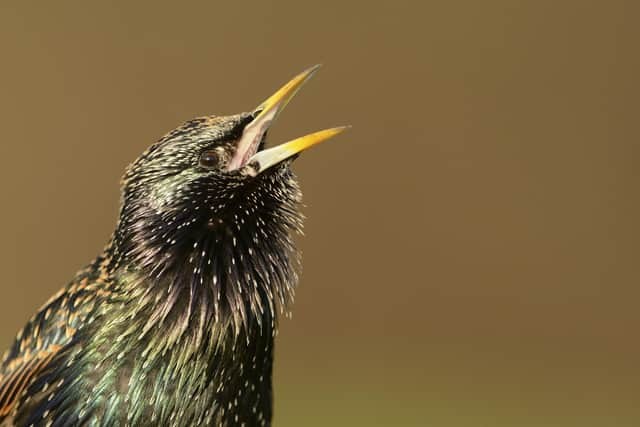RSPB's Big Garden Birdwatch: What is it and how you can get involved


This year marks the 44th Big Garden Birdwatch, which provides a snapshot of how garden birds are faring in the UK.
Beccy Speight, the RSPB’s chief executive, said: “The birds we see in our gardens, from our balconies, and in our parks, are a lively, colourful and endlessly fascinating part of all our lives, offering a real connection to the natural world.
Advertisement
Hide AdAdvertisement
Hide Ad“By taking part in the birdwatch you, and hundreds of thousands like you, play an important role in helping us understand how UK birds are doing. With birds now facing so many challenges due to the nature and climate emergency, every count matters.


"Join us for Big Garden Birdwatch 2023 and together let’s take action to protect and preserve our birds and wildlife for generations to come.”
All you have to do is count the birds that you see in your garden, from your balcony, window or in your local park for one hour between January 27 and 29 and send your results to RSPB.
You only count the birds that land, not those flying over. Tell the RSPB the highest number of each bird species you see at any one time – not the total you see in the hour.
Advertisement
Hide AdAdvertisement
Hide AdBeccy said: “Whatever you see - one blackbird, 20 sparrows or no birds at all - it all counts. It helps us build that vital overall picture of how our garden birds are faring from one year to the next. With so much challenging our birds now, it’s more important than ever to submit your results. Our garden birds are counting on you.”


In 2022 nearly 700,000 people took part counting 11 million birds.
The house sparrow remained at the top of the Big Garden Birdwatch rankings as the most commonly seen garden bird with more than 1.7 million recorded sightings in 2022. Blue tit and starling remained in the number two and three positions respectively.
Over its four decades, Big Garden Birdwatch has highlighted the winners and losers in the garden bird world. It was first to alert the RSPB to the decline in song thrush numbers, which are down a shocking 81 per cent compared to the first Big Garden Birdwatch in 1979. This species was a firm fixture in the top 10 in 1979, but by 2009, its numbers were less than half those recorded in 1979. It came in at 20 in the rankings last year, seen in just eight per cent of gardens.
Advertisement
Hide AdAdvertisement
Hide AdBirds that have been spotted in Sussex in previous years include the song thrush, wren, greenfinch, woodpigeon, jackdaw, collared dove, magpie, robin, house sparrow, starling, goldfinch, blackbird and blue tit.
To help maximise how many birds you spot be sure to top up your bird feeders and ensure bird baths are full to the brim.
Beccy said: “Remove old food and clean your feeders weekly, as disease can be a serious issue for some species.
"Greenfinch numbers have massively dropped due to a disease that spreads around contaminated feeders and water bowls, and chaffinches are now struggling.”
Advertisement
Hide AdAdvertisement
Hide AdIf you don’t have a garden, it’s no problem. The RSPB says that even a small window feeder will attract more birds for your Big Garden Birdwatch, and you can even make your own bird feeder.
There is also the RSPB Big Schools’ Birdwatch, which takes place during the first half of spring term, from January 6 until February 20.
In 2021, it celebrated its 20th anniversary of connecting children with nature in their school grounds. Since its launch, over a million school children and teachers have taken part. Further information can be found at www.rspb.org.uk/schoolswatch
There is also a number of local events taking place so people can learn about birdwatching.
Advertisement
Hide AdAdvertisement
Hide AdRSPB Pagham Harbour is hosting a guided beginner’s birdwatching walk on January 28 from 10am until 1pm. The guides will help you identify some of the regular small and garden birds on this gentle walk around the visitor centre and discovery trail at Pagham Harbour. Event attendance is £7.50 / £4.50 for members. Admission to RSPB Pagham Harbour nature reserve is free. Parking charges apply, free for RSPB members
For further event information, visit events.rspb.org.uk/paghamharbour
And at RSPB Pulborough Brooks there is birding for absolute beginners, where you will be given plenty of hints and tips on how to enjoy watching and identifying birds. It will be on January 28, 9.30am until noon, it is £25.50 per person / £20.50 for RSPB members and includes nature trail entry and parking.
For further event information, visit events.rspb.org.uk/pulboroughbrooks
Advertisement
Hide AdAdvertisement
Hide AdMoney raised through purchases at these events helps the RSPB nature reserve teams to continue to deliver their wildlife conservation work, advocacy, education and allows thousands of people every year to get closer to nature.
The RSPB is a registered charity protecting habitats, saving species and helping to end the nature and climate emergency.
Registration is now open for the free Big Garden Birdwatch guide, which includes a bird identification chart, top tips for the birdwatch, RSPB shop voucher, plus advice on how to help you attract wildlife to your garden, text BIRD to 70030 or visit www.rspb.org.uk/birdwatch